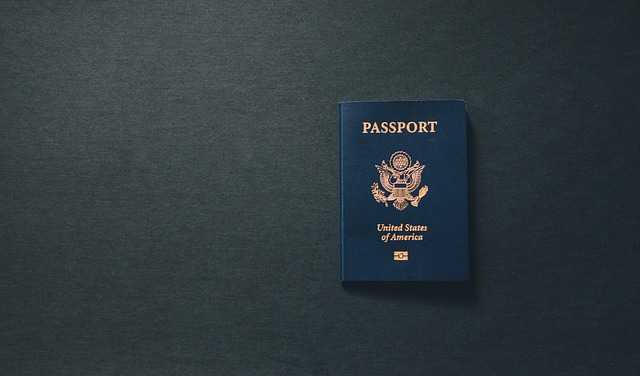Being considered a flight risk can be a significant obstacle when it comes to bail hearings. If you’re facing this predicament, grasping the implications and identifying actionable defenses is crucial. This guide provides no-nonsense steps for tackling the issue head-on, focusing on what to do if you’re considered a flight risk. We’ll delve into the criteria that might peg you as a flight risk and offer clear guidance on how to counter such assumptions, including hiring legal representation, strengthening community roots, and much more. Brace yourself for a pragmatic approach that can steer your path toward favorable bail conditions.
Key Takeaways
- Understanding flight risk factors such as the severity of charges, past court attendance, and community ties is essential to effectively argue against a flight risk designation during bail hearings.
- Hiring an experienced defense attorney is crucial to argue against flight risk perceptions, present evidence of community ties, and negotiate more favorable bail conditions or reductions.
- Demonstrating strong community involvement, maintaining legal employment, providing a stable address, and complying with all court conditions are effective strategies to mitigate flight risk concerns.

Understanding Flight Risk Factors
Caught up in the whirlwind of legal proceedings, you might wonder, “What exactly is a flight risk?” It’s a term used in the judiciary to indicate someone likely to flee or avoid criminal prosecution. Several factors such as the severity of charges, past failures to appear in court, and lack of community ties, can label you as considered a flight risk. In this context, the defendant’s flight risk is assessed to determine the likelihood of them evading criminal prosecution. Understanding flight risks can help you better navigate the legal process.
Understanding these factors is fundamental to argue against the defendant’s flight risk designation effectively. It’s like playing a strategic game – knowing the rules allows you to make the right moves.
Severity of Charges
Imagine you’re accused of a crime that carries a hefty punishment. The court might believe that the weight of these criminal charges could motivate you to skip town to avoid criminal prosecution. Aggravating factors such as substantial bodily injury to the victim, the depravity of the offense, or committing the crime with accomplices, among others, can amplify the severity of charges and be indicative of criminal behavior.
However, it’s not all doom and gloom. Mitigating factors, such as your cooperation with law enforcement or being a good candidate for treatment programs, can lessen the severity of charges and thus, potentially reduce your perceived flight risk.
Past Failures to Appear
Let’s say you missed a court date in the past. The court could interpret this as a tendency to evade the law, increasing your flight risk designation. Consequences of past failures to appear, including the impact on the defendant’s appearance, can range from arrest warrants to additional charges, even being held in contempt of court.
However, life happens, and sometimes, circumstances such as childcare or work conflicts could have hindered your previous court appearances. Keeping a detailed record of these instances can be instrumental in establishing a history of compliance with court orders.
Lack of Community Ties
Ever heard the phrase “no man is an island?” This rings very true in the legal world. If you lack strong ties to your community, the court might believe you have no significant reasons to stay within the jurisdiction, thus escalating your flight risk.
Strong family or community ties decrease the risk of flight, often resulting in more favorable bail decisions. It’s like being a part of a close-knit neighborhood – the deeper your roots, the less likely you are to leave.
Hiring an Experienced Defense Attorney
Imagine being lost in a foreign city without a map. That’s how daunting legal proceedings can appear. In such cases, hiring a competent defense attorney is like having a local guide who’s familiar with the city’s intricate alleyways. An experienced defense attorney can effectively argue against your flight risk designation and ensure you are well-prepared for bail hearings.
An attorney plays a pivotal role in the criminal justice system, presenting evidence of your community ties, which could sway the court to grant reduced bail and show your commitment to future court appearances. After all, having a skilled navigator is crucial when finding your way through uncharted territories, especially when the judge believes in the strength of your community ties and can judge determine the outcome accordingly.
Strengthening Your Community Ties
Imagine moving to a new town and not knowing anyone. To become part of the community, you’d probably attend local events, join clubs, or participate in neighborhood activities. Similarly, demonstrating strong community ties can help mitigate flight risk concerns during bail hearings.
Be an active member of your community. Engage in local events, host or join community field days, take part in charity events, or even organize mega-markets. By doing so, you establish a reputation as a committed member of the community.
Also, volunteering for local organizations or participating in community-wide donation drives can significantly counteract the perception of being a flight risk. It’s about being seen, being known, and being involved.

Voluntarily Surrendering Your Passport
Just as a bird relinquishes its freedom when it enters a cage, voluntarily surrendering your passport can demonstrate your commitment to court appearances. This action signals to the court that you have no intention to leave the country, potentially alleviating concerns about flight risk.
Electronic Monitoring and House Arrest
Imagine being under constant surveillance, like a character in a dystopian novel. Welcome to the world of electronic monitoring. As invasive as it might seem, agreeing to electronic monitoring or house arrest can provide alternatives to detention and can help mitigate flight risk concerns.
These systems range from 24-hour lockdowns to curfews with preapproved absences for various activities. Also, electronic monitoring offers a significant cost advantage over pretrial detention, allowing defendants to maintain employment and family connections.
Adhering to Court Conditions
Imagine you’re playing a high-stakes game where every move matters. That’s the reality when adhering to court conditions during bail. Strict adherence to court-imposed conditions such as curfews, reporting requirements, and travel restrictions is essential for maintaining your freedom during bail.
Regular communication with the court is vital for demonstrating a responsible attitude. If there are instances where a bail condition cannot be met, immediate and open communication with the court is necessary to prevent misconceptions about non-compliance.
Maintaining legal employment is a strong indicator of compliance and stability. Verifying employment and a consistent work schedule can further demonstrate your commitment to adhering to bail conditions.
Providing a Stable, Fixed Address
Think of your house as a beacon, a fixed point that assures the court of your presence in the community. Providing a stable, fixed address assures the court of your traceability for court appearances or in case of further offenses.
Communicating to the court the details of your living situation, including the consent of the homeowner or leaseholder, is crucial in the bail application process and setting bail. After all, a ship anchored to a stable point is less likely to drift off course.
Seeking Bail Reduction and Bail Bondsmen
If the bail amount set seems like a mountain too high to climb, don’t lose hope. You have the right to argue for a reduction in the initial higher bail amount during a designated hearing. A competent defense attorney can advocate for lower bail amounts, potentially making bail more attainable and increasing the likelihood of being granted bail.
Bail bondsmen provide a service that allows defendants to post bail by paying the full bail amount in exchange for a premium, securing their release from jail. But tread carefully, as any premium paid to a bail bondsman is non-refundable, even if the case outcome is in your favor.
The potential for harsh consequences for failure to appear may impact pretrial detention, including instances where defendants are denied bail, and financial conditions, thereby influencing the existence and operations of the bail bond industry.
Preparing for Home Visits and Legal Employment
Imagine you’re invited to a formal event. You’d dress appropriately, wouldn’t you? Similarly, preparing for home visits by probation officers involves ensuring your living environment is in order. Prior to these visits, residents should remove any prohibited items and ensure the living environment does not include associations with negative influences.
Maintaining or seeking employment and engaging in hobbies and interests while on bond are positive activities that demonstrate compliance and reliability. Thus, presenting a picture of stability and dedication can go a long way in solidifying your position during the legal process.
Gathering Support from Family and Community
Imagine you’re embarking on a difficult journey. Wouldn’t it be comforting to have your family and friends cheering for you? Similarly, gathering support from family and community members can establish strong ties and positively influence bail considerations.
Having relatives nearby, garnering endorsements from community leaders, or presenting testimonials from community figures that attest to your active role in the community can substantiate your bonds to the court. It’s like weaving a safety net of connections that the court can rely on.
Maintaining Compliance and Record-Keeping
Imagine trying to recall an event from a year ago without any photos or diary entries. Difficult, right? That’s why maintaining detailed records of your activities and legal restrictions is crucial during bail.
Regular revision and updating of compliance records align with changing legal standards and personal circumstances. Keep a precise record of financial constraints and financial resources to argue against the imposition of electronic monitoring if you cannot afford it, as this may constitute pretrial detention due to economic status.
Summary
Navigating the legal labyrinth when you’re considered a flight risk can be daunting. However, understanding the factors that contribute to this designation, hiring an experienced defense attorney at Levitt Legal, strengthening your community ties, and adhering to court conditions can help mitigate these concerns. Remember, every step you take towards compliance brings you closer to a more favorable outcome. Contact Levitt Legal for professional legal representation today in Utah!
Frequently Asked Questions
What happens if you are a flight risk?
If a judge believes you may flee rather than return to court, a higher bail may be set, or bail may be denied altogether. On the other hand, if you are considered a low flight risk, your bail may be lower or you may even be released on your recognizance. It’s crucial to demonstrate to the court that you are not a flight risk to have a fair chance of being released on bail or your recognizance.
How do you prove someone is not a flight risk?
To prove someone is not a flight risk, they can present evidence or witness testimony to show their intention to appear in court. This can potentially influence the judge’s decision on setting bail.
What makes a defendant a flight risk?
A defendant is considered a flight risk if there is a significant risk that they will fail to appear for a future court date, as described by judges, attorneys, and scholars. This definition encompasses a broader understanding of flight risk.
How can an experienced defense attorney help in this situation?
An experienced defense attorney can help by advocating against flight risk designation and preparing you for bail hearings, ensuring the best possible outcome for your case.
What role do community ties play in bail considerations?
Having strong community ties can mitigate flight risk concerns during bail hearings and lead to more favorable bail decisions.
